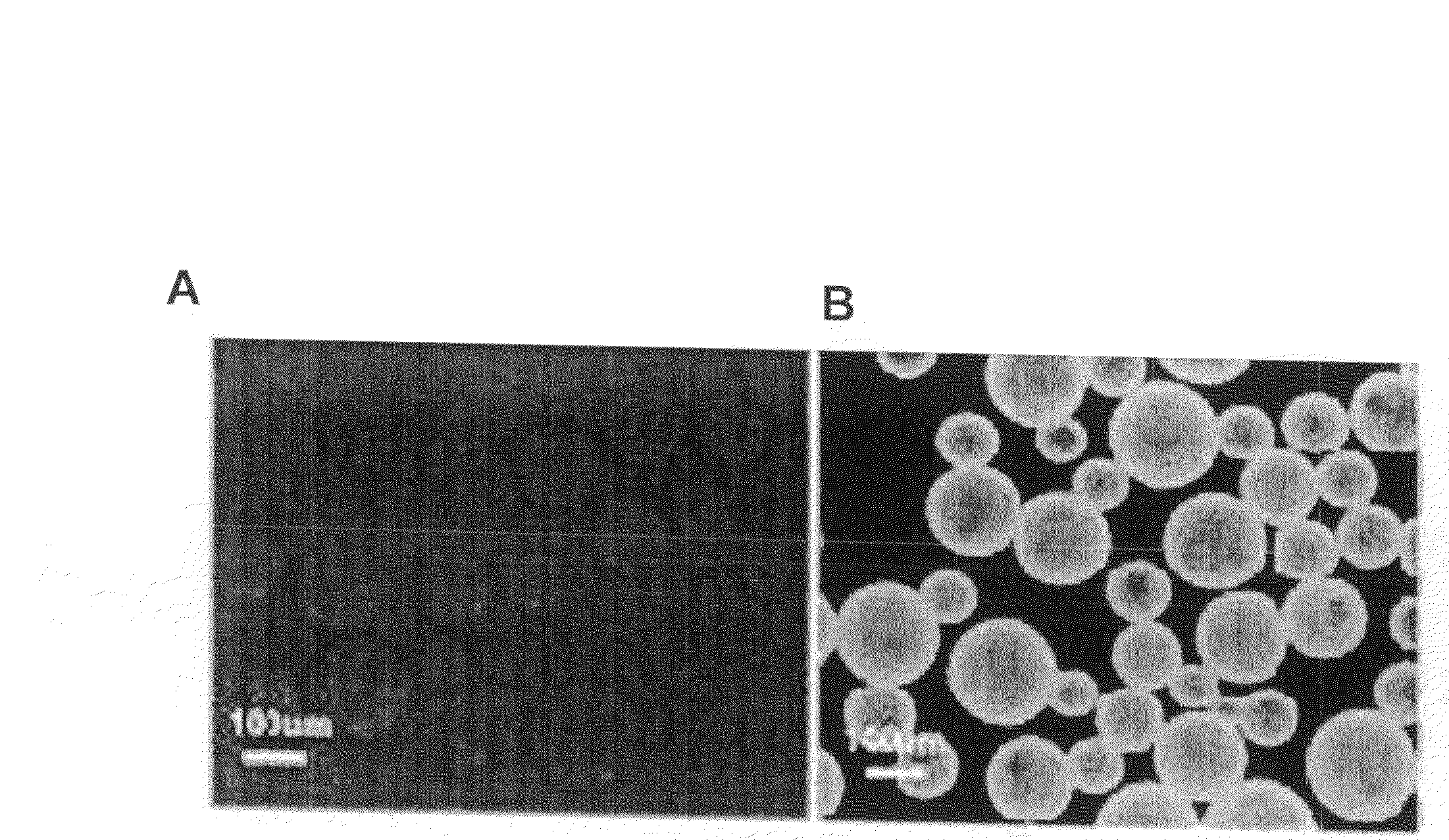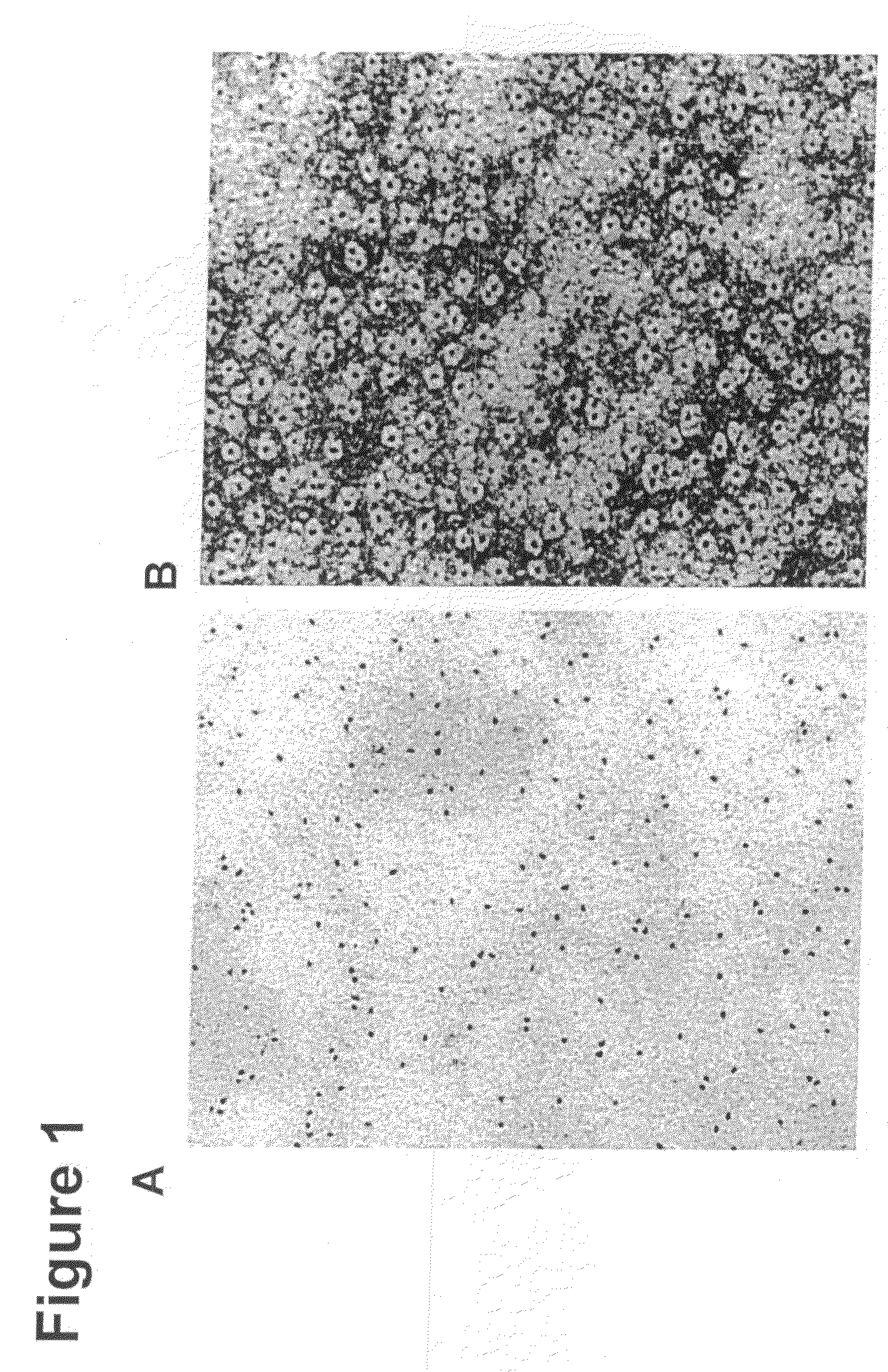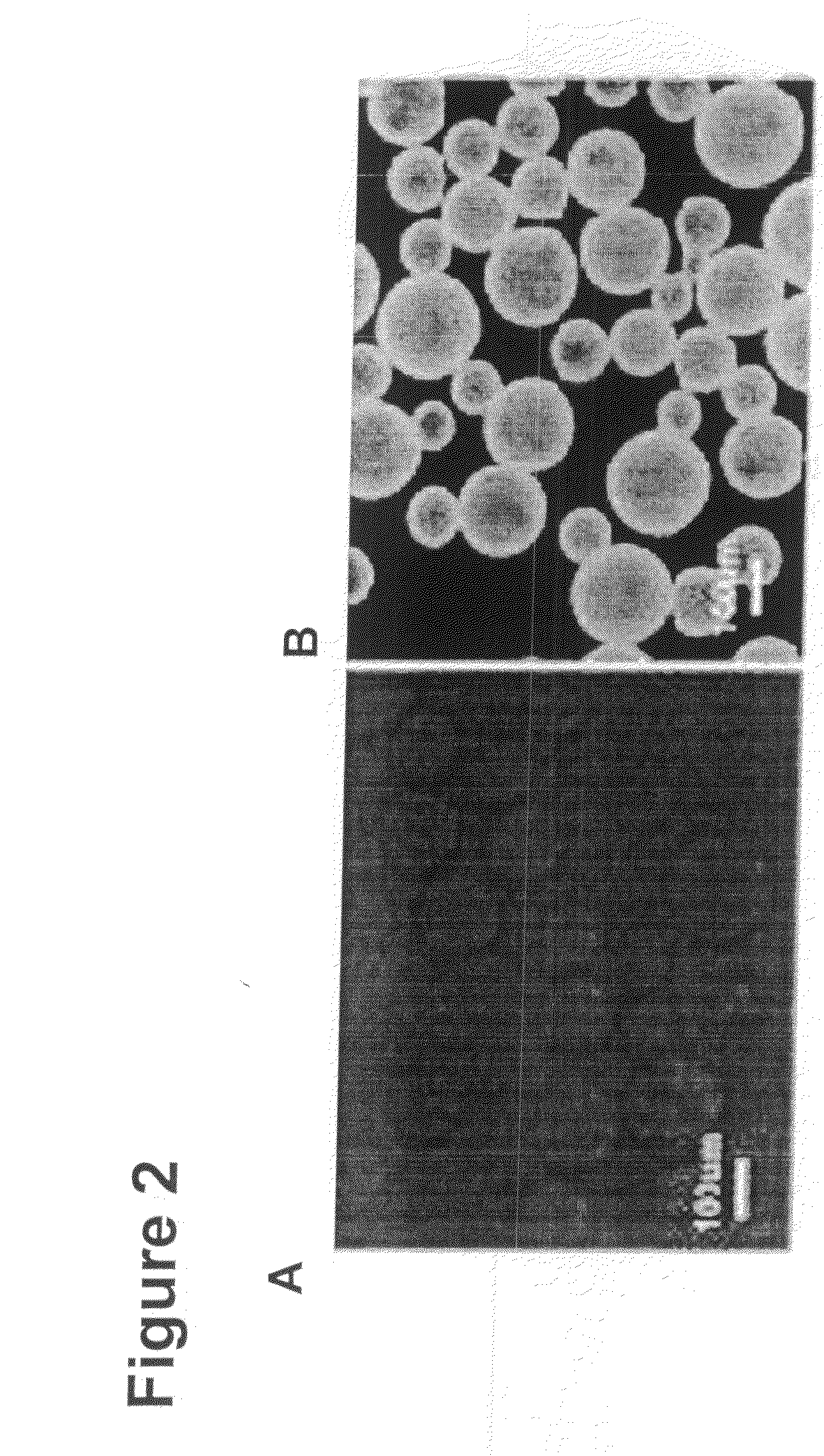Water soluble metal and semiconductor nanoparticle complexes
a technology of metal and semiconductor nanoparticles, applied in the direction of depsipeptides, magnetic materials, peptide/protein ingredients, etc., can solve the problems of inability to use a plurality of colored fluorescent molecules, inability to simultaneously satisfy the conditions of the prior art, and inability to use a plurality of different colored fluorescent molecules
- Summary
- Abstract
- Description
- Claims
- Application Information
AI Technical Summary
Benefits of technology
Problems solved by technology
Method used
Image
Examples
example 1
Synthesis of Water Soluble Complexes with PEG, Molecular Weight of 2000
[0099]CdSe / ZnS core / shell nanoparticles were coated with the hydrophobic ligand TOPO following standard procedure described in the literature (Murray et al. J. Am. Chem. Soc. (1993) 115:8706; Hines et al. J. Phys. Chem. (1996) 100:468). The coated nanoparticles were stored at room temperature in hexane at 170 mg / ml.
[0100]To form the water soluble complex, 100 μl of CdSe / ZnS nanoparticles were precipitated with methanol and dried under vacuum. The nanoparticle precipitate was then suspended in 1 ml of a chloroform solution containing a total of 5.5×10−6 mole of phospholipids, of which 40% by weight was 1,2-dipalmitoyl-sn-glycero-3-phosphoethanolamine-N-[methoxy(polyethylene glycol)-2000 (mPEG-2000-PE) and 60% by weight was 1,2-dipalmitoryl-glycero-3-phosphocholine.
[0101]After complete evaporation of the chloroform, the residue was heated at 80° C. Next, 1 ml of water was added to obtain an optically clear solution...
example 2
Synthesis of Water Soluble Complexes with PEG, Molecular Weight of 2000
[0105]CdSe / ZnS core / shell nanoparticles were coated with the hydrophobic ligand TOPO following standard procedure described in the literature (Murray et al. J. Am. Chem. Soc. (1993) 115:8706; Hines et al. J. Phys. Chem. (1996) 100:468). The coated nanoparticles were stored at room temperature in hexane at 170 mg / ml.
[0106]To form the water soluble complex, 100 μl of CdSe / ZnS nanoparticles were precipitated with methanol and dried under vacuum. The nanoparticle precipitate was then suspended in 1 ml of a chloroform solution containing a total of 5.5×10−6 mole of phospholipids, of which 40% by weight was 1,2-dipalmitoyl-sn-glycero-3-phosphoethanolamine-N-[methoxy(polyethylene glycol)-2000 (mPEG-2000-PE) and 60% by weight was 1,2-dipalmitoryl-glycero-3-phosphocholine.
[0107]Water was added to the solution containing PEG-PE / PC micelles. Next, the solution was heated to evaporate the chloroform. The solution contains bo...
example 3
Synthesis of Water Soluble Complexes with Various Molecular Weight of PEG
[0111]Water soluble complexes were formed with PEG having a molecular weight of 550 or 5000 according to the procedure described in Example 1 above. The use of mPEG550-PE or mPEG-5000-PE yielded complexes similar in shape to those obtained from mPEG-2000-PE.
PUM
| Property | Measurement | Unit |
|---|---|---|
| diameter | aaaaa | aaaaa |
| diameter | aaaaa | aaaaa |
| wavelength | aaaaa | aaaaa |
Abstract
Description
Claims
Application Information
 Login to View More
Login to View More - R&D
- Intellectual Property
- Life Sciences
- Materials
- Tech Scout
- Unparalleled Data Quality
- Higher Quality Content
- 60% Fewer Hallucinations
Browse by: Latest US Patents, China's latest patents, Technical Efficacy Thesaurus, Application Domain, Technology Topic, Popular Technical Reports.
© 2025 PatSnap. All rights reserved.Legal|Privacy policy|Modern Slavery Act Transparency Statement|Sitemap|About US| Contact US: help@patsnap.com



